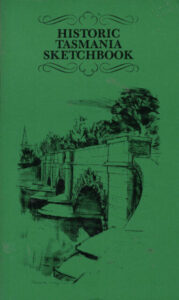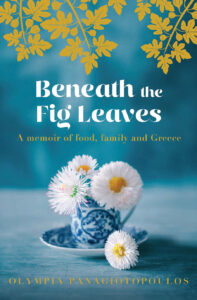Thirteen books were reviewed during February, with a satisfying spread between the genres, with a good showing for history.
As in other months, several reviews picked up on books which have featured in these Round Ups previously. Angharad Lodwick at Tinted Edges wrote two really thoughtful reviews: one for Julia Baird’s Phosphorescence (her review here) and the other for Gemma Carey’s No Matter Our Wreckage (review here). Kate@Booksaremyfavouriteandbest reviewed Jacqueline Kent’s biography of suffragist Vida Goldstein in Vida: A Woman For Our Time (review here) and Jennifer Cameron-Smith reviewed Katherine Kovacic’s The Schoolgirl Strangler (review here).
History
Two of the history books reviewed during February were set largely in Colonial Times.
Jeanette M. Thompson’s Bone and Beauty (2020) looks at the uprising of eighty convicts assigned to Bathurst farms in October 1830, led by the Ribbon Boys. Cass Moriarty writes in her review:
Bone and Beauty (UQP 2020) is an imaginative combination of history and literary fiction by Jeanette M. Thompson about the convict uprising at Bathurst in 1830, an event mostly forgotten but brought to life through Thompson’s highly accessible approach to history. …This is a very fine example of an author using meticulous research and archival evidence to reimagine and retell a gripping story that has been forgotten in the dusty past of history. The rich detail and evocative settings come direct from research, but the characterisations and motivations behind the main players have been reconstructed by Thompson’s lively imagination. (Review here)
Jennifer Cameron-Smith enjoyed returning to her Tasmanian roots with Joan Woodbury and Patsy Adam Smith’s illustrated Historic Tasmania Sketchbook (1977). This book is part of a series of about 175 titles published by Rigby  between 1966 and approximately 1982. Jennifer writes:
between 1966 and approximately 1982. Jennifer writes:
Whenever I get homesick for Tasmania, I browse through the sketches and reacquaint myself with some of the magnificent nineteenth buildings I recognise. …Superb sketches by Max Angus, Frank Mather and Arthur Phillips are accompanied by text by Patsy Adam Smith and Joan Woodberry. If you are interested in Tasmania’s colonial past, this book (if you can find a copy) is worth exploring. (Review here)
Leaping forward to the twentieth century, it’s rather sobering to read a history book that deals with events that you remember yourself. Those of us who remember the Whitlam dismissal will find out how a historian waged a long legal campaign to access the documents written at the time in Jenny Hocking’s The Palace Letters (2020). In her review Janine Rizzetti at Resident Judge observes:
After the National Archives refused Hocking access to the correspondence between Sir John Kerr and the Queen’s Private Secretary Sir Martin Charteris after the statutory period had elapsed, she embarked on a ten-year battle to
resolve the status and ownership of these documents as part of the historiographical record of Australia. This book is the story of that fight. …While, of course, tales of the archives and courtroom stories will appeal to a particular type of reader, this book itself is very accessible. Who said that historians can’t be heroes? If you’re tempted to read it, read Hocking’s The Dismissal Dossier first (which will probably get you fired up) and then read this book, almost as a type of morality tale, to see the Mighty Fallen and the rewards for persistence and the courage to put yourself on the line – for our right to know our own history. (Review here)
Memoir
Growing Up Disabled in Australia (2021) is the latest in Black Inc’s ‘Growing Up’ anthology series depicting diverse experiences of Australian life, this publication edited by Carly Findlay. Cass Moriarty writes:
Featuring some famous names and some less famous but equally compelling storytellers, this book is a frank and informative ‘own voices’ memoir
compilation of what it means to be labelled as disabled, how that affects people differently, the challenges disability provokes but also the strength and self-confidence people with disabilities often demonstrate in their lives. …Some of the included pieces are quite different in form and structure; some are funny, some sad, some frustrated or angry and some poignant. All are written with the complex emotions suffered by young people who grew up knowing they were different, and not always knowing how to deal with that, especially if their society or community around them made it more difficult because of exclusion, ableism, intolerance, impatience, ignorance or a lack of compassion. (Review here)
In 1955 Giannoula and Fotios Panagiotopoulos left their village in Greece to migrate to Australia, rumoured as a land of opportunity where hard work brought reward. This book, written by Giannoula’s youngest daughter, tells of  homeland, food and history. Sally Jane Smith has reviewed Beneath the Fig Leaves: A Memoir of Food, Family and Greece (2020) and she writes:
homeland, food and history. Sally Jane Smith has reviewed Beneath the Fig Leaves: A Memoir of Food, Family and Greece (2020) and she writes:
This gentle narrative enchanted me from the very first page. …It is a story that stems from the senses – textures, aromas and tastes that blossom from the ingredients prepared by 91-year old Giannoula with the help of her daughter’s willing hands. Each dish is filled with memory, whether it be of loved ones lost, of long-ago hardships endured, of youthful romance, or the bond between grandparent and grandchild. Through it all, the love between mother and daughter glows. (Review here)
Biography
There have been whole bookshelves of biographies written of Ned Kelly and the Kelly Gang. Kate Kelly: The True Story of Ned Kelly’s Little Sister (2021) by Rebecca Wilson widens the lens on the Kelly family to tell the largely-unknown story of Kate Kelly. In her review Ashleigh Meikle The Book Muse notes:
Kate’s story is one of those hidden and untold stories of women in history. Rebecca’s account doesn’t shy away from Kate’s history, or that she loved and tried to help her brother Ned, or whatever she went through. Not all is known, as Rebecca has had to work with the available sources, but in doing so, she has given a voice to a woman oft ignored – and her significant role in forming the legend of the Kelly Gang in the years after Ned’s death with her brother Jim. (Review here)
With My Little Eye (2021) is the biography of the Doherty family, a family of spies in suburban 1950s Australia, written by journalist Sandra Hogan with the co-operation of the family after the veil of secrecy was finally lifted. In her review Shelleyrae@Book’dOut writes:
While most intelligence officers keep their work secret, often even their spouse are unaware their partner is a spy, Dudley and Joan ran a ‘family operation’. From birth they were props as their mother eavesdropped in cafes, or their father took photos of them at parades. The children were taught to look for people or cars that may be out of place, to recall details of faces and places, to memorise number plates, and never draw attention to themselves. Their parents made many of these activities seem like fun, and Hogan details some of the ‘games’ the family ‘played’, but spy craft is a serious business, and in the Doherty family, work always came first….There are flashes of humour in this unusual biography, but I most often found it rather poignant. With My Little Eye is a fascinating account of an unusual family, and their unique role during the infancy of ASIO. (Review here)
I’m always struck by the range of eras and situations that are dealt with in the reviews in this genre. Thanks to all those who have shared their reviews with us.
About: I’m Janine Rizzetti and I blog at the immodestly-named The Resident Judge of Port Phillip where I indulge my love of reading, podcasts, history and seeing films and exhibitions just before they close. I am a historian, interested in Australian and colonial history. I’m officially retired but more occupied than I thought I would be with my local historical society, playing with grandchildren, learning Spanish and now playing ukulele!





Great wrap up Janine!
Hmmm, I thought I had commented on this. Great round up. Loved seeing the review of a book from the Sketchbook series which I remember from the seventies. What a hoot!
So many books here interest me, I can’t begin to say which!!